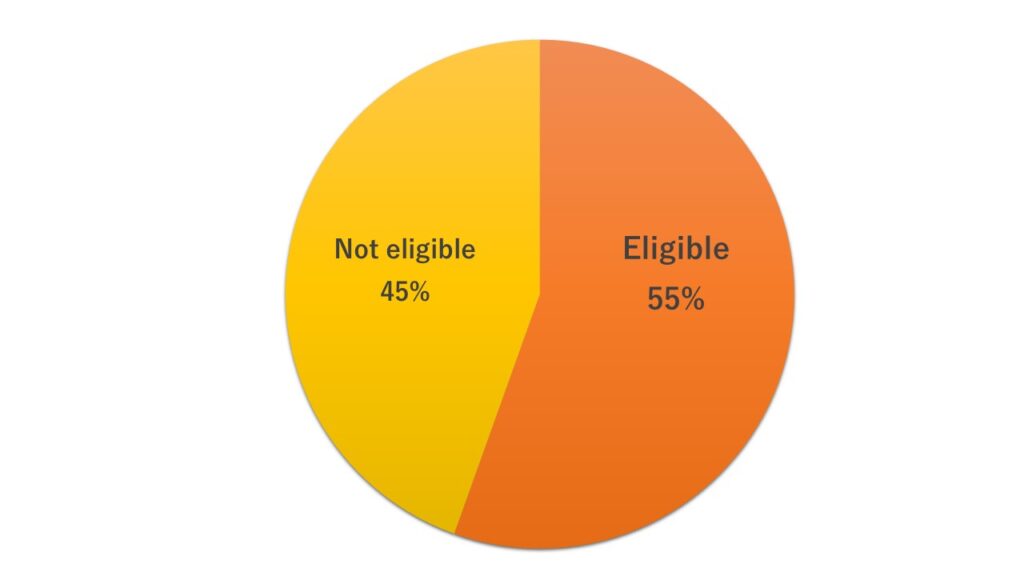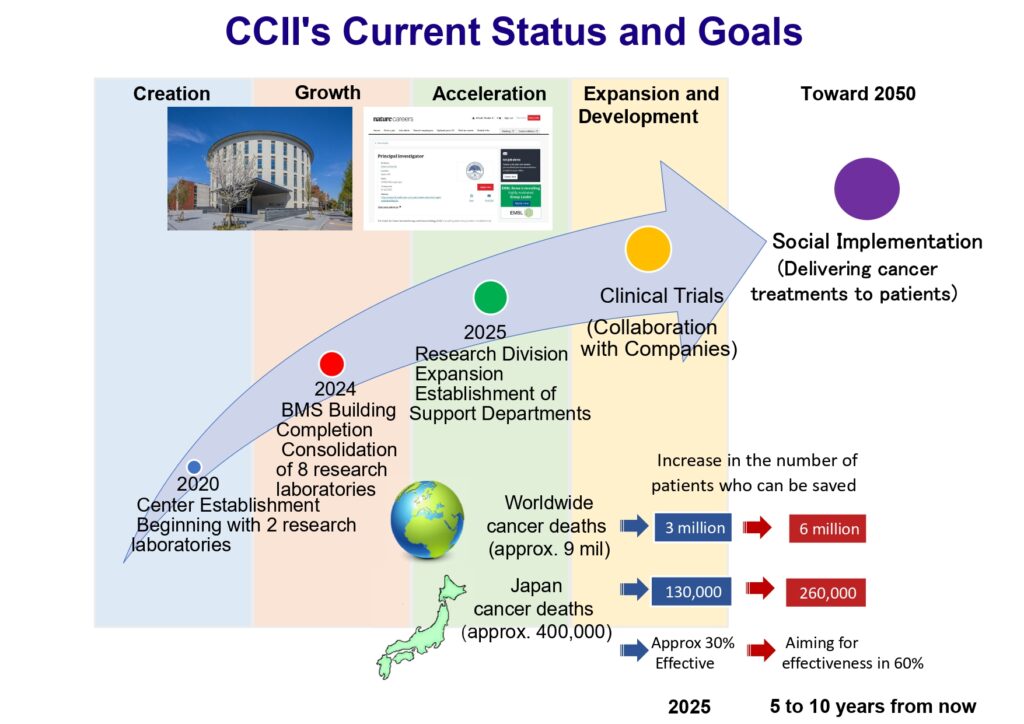An Invitation to Support Cancer Immunotherapy Research

The Center for Cancer Immunotherapy and Immunobiology (CCII) at Kyoto University was established on April 1, 2020, as the first Japanese comprehensive research institute dedicated to cancer immunotherapy. With the shared aspiration of achieving what has long been humanity’s greatest hope —the complete cure of cancer— our team is fully committed to advancing both clinical and fundamental research.
Your generous contributions play an essential role in sustaining and accelerating our mission. Donations are used with the utmost care to support our research activities, including the development of state‑of‑the‑art research facilities, the recruitment and retention of exceptional researchers, the organization of international symposia, and the dissemination of our scientific achievements worldwide.
We sincerely ask for your warm support in helping us drive forward the future of cancer immunotherapy.
For further information on how to make a donation, please click here
Tasuku Honjo
CCII Director
The Kyoto-Born Cancer Treatment That Changed the World — The Birth of PD-1 Antibody
Developed by Professor Tasuku Honjo, the PD-1 antibody, Opdivo (nivolumab), received the world’s first approval in 2014, ushering in a new era of cancer immunotherapy. This treatment has saved the lives of many cancer patients who could not be saved by conventional therapies and is credited with sustaining countless lives globally.
Initially, its efficacy was recognized only for a limited number of cancers, such as skin cancer, but research advances have led to its expanded application to over 20 cancer types. The PD-1 antibody is now recognized as the “Fourth Pillar of Cancer Treatment,” alongside surgery, radiation, and chemotherapy, supporting medical practice worldwide.
【History of Representative Application Expansion】
2014: Some skin cancers
2015: Most lung cancers
2016: Renal cancer
2016: Some lymphomas (blood cancers)
2017: Gastric cancer
2017: Pharyngeal, oral cancers, etc. (many head and neck cancers)
2017: Bladder, renal pelvis, and ureteral cancers
2018: Some mesotheliomas
2020: Esophageal cancer
2021: Cancer of unknown primary

Currently, more than half of all cancer patients are eligible for cancer immunotherapy (ICI).


Source: Vinay Prasad, et al. “Updated estimates of eligibility and response: Immune checkpoint inhibitors.” Journal of Clinical Oncology (2024).
Note on the Graph: This graph was independently created (graphed) by this center based on the data from the above-cited paper.
Fighting Cancer with the Body’s Own Immunity — A Gentle New Option for Patients
Immunotherapy using PD-1 antibodies is a treatment that restores the body’s inherent “power of immunity”. It utilizes the autonomous defense mechanism to find, attack, and prevent the recurrence of cancer.
Because side effects are relatively few and the burden on the body is light , patients can manage both treatment and daily life. It is gaining attention as a therapy that “supports a patient’s own way of life”.
Furthermore, effective cases have been reported even in terminal cancers that involve repeated metastasis and recurrence. This offers a glimpse of a new future where it is possible to “live with cancer”—something previously thought impossible.
The Challenge of the Center for Cancer Immunotherapy and Immunobiology (CCII)
Established within the Kyoto University Graduate School of Medicine in April 2020, the Comprehensive Cancer Immunology Institute (CCII) aims for the further evolution of cancer immunotherapy under the leadership of Director Tasuku Honjo, who was awarded the 2018 Nobel Prize in Physiology or Medicine.
While PD-1 antibody treatment has achieved high success globally, the challenge remains that more than half of patients still do not experience sufficient effects.
The CCII is tackling research holistically, from molecular-level basic science to clinical application. Our goal is to decipher the mechanisms by which cancer cells evade the immune system and establish high-quality cancer immunotherapy that everyone can experience the benefits of.

Your Support Will Create Future Treatments
To sustainably advance this challenge, the CCII has established the “Cancer Immunotherapy Research Fund”.
Your donations will be directly utilized for research that supports the future of medicine, including:
- Training young researchers
- Discovering new immune targets
- Developing drugs to maximize the effect of immunotherapy
Cancer is a disease that affects everyone. Each contribution you make will lead to the realization of “curable cancer” and “non-recurring cancer”.
Please join us in building a future where cancer is overcome.
How You Can Support Us
❶ Making a Donation per Payment Slip
Please contact the below Secretariat of the “Cancer Immunotherapy Research Fund”. Please convey your name, address and telephone number and we will send you a payment slip. (You can also complete the payment at a post office or bank counter.)
Please feel free to contact us with any inquiries regarding your donation.
Contact: CCII Fundraising Office
cirf-kikin@mail2.adm.kyoto-u.ac.jp
+81 75 7535855
❷ Making a Donation via “Kyoto University Fund” Website
The Kyoto University Fund “Cancer Immunotherapy Research Fund”
Support this project with a donation >

